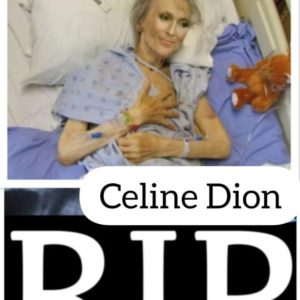Dementia is a growing concern worldwide.
According to the World Health Organization, around 50 million people globally have dementia, with nearly 10 million new cases every year.
Frontotemporal dementia (FTD) stands out as a unique form of dementia that primarily affects the frontal and temporal lobes of the brain.
These regions are responsible for various functions, including personality, behavior, and language.
FTD is distinct from other forms of dementia, such as Alzheimer’s, in its symptoms and progression.

The Alzheimer’s Association notes that FTD accounts for a significant percentage of dementia cases in younger individuals, typically striking between the ages of 40 and 65.

Signs and Symptoms
FTD manifests in a variety of ways, but common symptoms include:
- Personality and behavioral changes.
- Language problems.
- Memory issues, especially in the early stages.
- Emotional bluntness or inappropriate emotional responses.
- Difficulty planning or organizing activities.
Causes of FTD
The exact cause of FTD remains a topic of ongoing research. However, several factors have been identified:
- Protein Buildup: Abnormal accumulations of proteins, such as tau or TDP-43, in the brain have been linked to FTD. These protein buildups can damage nerve cells and affect communication between them.
- Genetics: Some cases of FTD are hereditary, with certain genetic mutations identified as contributors. Families with a history of FTD may have a higher risk of developing the condition.
- Other Factors: While less common, factors like brain injuries, infections, or exposure to environmental toxins might also play a role in the development of FTD.
Emma Heming Willis: A Caregiver’s Perspective
Emma Heming Willis, wife of renowned actor Bruce Willis, has been thrust into the role of a caregiver since her husband’s diagnosis with FTD in February. “I have to make a conscious effort every single day to live the best life that I can,” she shared on Instagram. “I do that for myself. I do that for our two children and Bruce, who would not want me to live any other way.” Her journey, as shared on social media, offers a raw and candid look into the challenges faced by caregivers.
View this post on Instagram
A post shared by Emma Heming Willis (@emmahemingwillis)
The Role of Caregivers and Their Challenges
Caregivers play a pivotal role in the lives of those with dementia. Their responsibilities range from assisting with daily tasks to providing emotional support. However, the journey is fraught with challenges:
- Emotional Strain: “I don’t want it to be misconstrued that, like, I’m good. Because I’m not good. But I have to put my best foot forward for the sake of myself and my family,” Emma expressed. Watching a loved one’s cognitive abilities decline can be heart-wrenching, leading to feelings of grief, sadness, and frustration.
- Physical Exhaustion: The demands of caregiving can be physically taxing, especially as the disease progresses. This can lead to sleep deprivation, physical ailments, and overall fatigue.
- Social Isolation: Caregivers often feel isolated from friends and family, leading to feelings of loneliness. Emma’s outreach to other caregivers, asking them to share photos of “something beautiful,” highlights the need for moments of respite and connection.
- Financial Pressure: Medical bills, coupled with potential loss of income, can strain finances. The cost of treatments, medications, and potential home modifications can be overwhelming.
- Mental Health: The constant stress and demands can lead to anxiety, depression, and other mental health challenges. “Your pictures, words of support and love for me and my family were felt. Honestly, thank you, it helps,” Emma wrote, emphasizing the importance of support.
Tips for Caregivers
- Seek Support: Joining support groups can provide invaluable advice and emotional backing.
- Educate Yourself: Resources like the National Institute on Aging offer comprehensive information.
- Prioritize Self-care: Engaging in activities that bring joy and relaxation is crucial.
- Seek Professional Guidance: Consulting specialists can offer tailored strategies for caregiving.
Frontotemporal dementia is a challenging condition, not just for those diagnosed but also for their caregivers. Emma Heming Willis’s journey underscores the importance of community, self-care, and education in navigating this path. As the public becomes more aware of FTD and other forms of dementia, it’s crucial to extend support and understanding to the caregivers who tirelessly work behind the scenes. Their role is invaluable, and as Emma suggests, a simple gesture of gratitude can go a long way. https://www.youtube.com/embed/mEOJ62dKQMI






